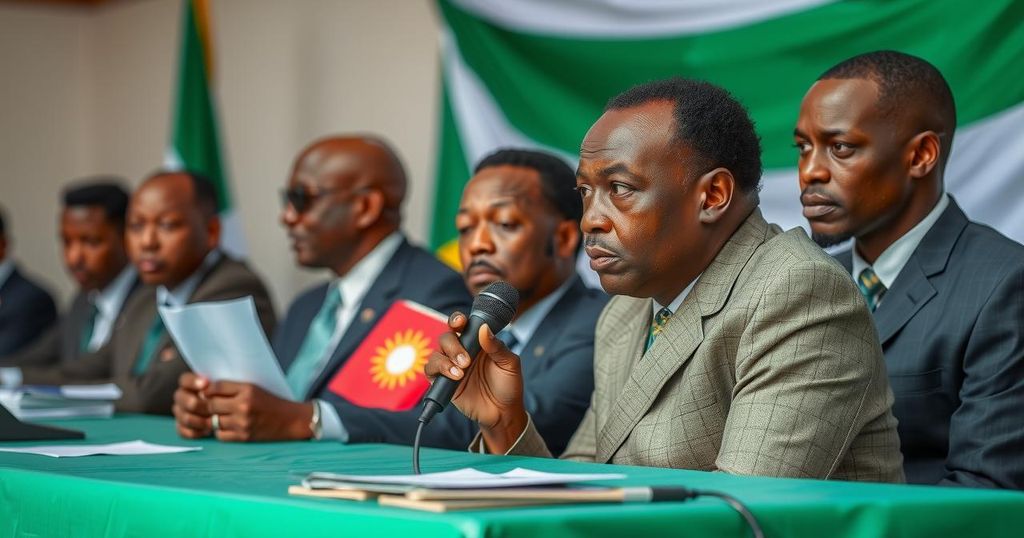Comoros held a parliamentary election on Sunday, boycotted by some opposition parties who cited concerns over authoritarianism and electoral integrity. Approximately 330,000 voters were registered, but low turnout is expected due to widespread dissatisfaction. Assoumani’s party previously dominated the last election, raising further scrutiny on the fairness of this vote amidst ongoing political unrest in the archipelago.
On Sunday, the Comoros conducted a parliamentary election that faced a boycott from several opposition factions. These opposition leaders accused President Azali Assoumani and his ruling party of becoming increasingly authoritarian, raising serious doubts about the election’s legitimacy. Approximately 330,000 voters are registered, which is a fraction of the archipelago’s population, and there are concerns that many may abstain due to dissatisfaction with the democratic process.
The electoral commission is set to announce results next week for the 33 legislative seats. Previously, Assoumani’s party claimed 20 out of 24 contested seats in the last parliamentary election held in 2020. During this recent election, Assoumani cast his vote in his hometown of Mitsoudjé on the island of Grande Comore, amidst an atmosphere of dissent regarding the fairness of the electoral system. Opposition parties criticized previous elections as farcical and non-transparent, and they anticipated similarly low turnout for this vote.
Notably, the Juwa Party, led by former President Ahmed Abdallah Sambi, was among the groups refraining from voting, a position it also adopted in the 2020 election. Comoros has experienced significant political turmoil since achieving independence from France in 1975, with Assoumani’s military background and numerous coups contributing to a tumultuous political landscape. Since reclaiming power in 2016, Assoumani has been accused of implementing constitutional changes to extend his tenure while suppressing political dissent, as characterized by a report from the Africa Center for Strategic Studies, which described his leadership as increasingly oppressive.
The Comoros is an Indian Ocean archipelago that has undergone frequent military coups since gaining independence from France in 1975. President Azali Assoumani first came to power in 1999 through a coup and has navigated a turbulent political history, oscillating between power and civilian governance. The country has faced criticism for its electoral integrity, particularly following constitutional amendments that have allowed Assoumani to extend his rule beyond traditional term limits. His presidency has been marred by allegations of electoral fraud and political repression, leading to significant opposition unrest and calls for reform.
In summary, the recent parliamentary election in Comoros highlights the ongoing political discord and governance challenges within the nation. The boycott by key opposition parties reflects deep-seated concerns regarding the electoral process’s fairness. With a history of electoral malpractices under President Assoumani, the upcoming results are anticipated with skepticism, as many citizens express disillusionment with the current democratic processes. This situation underscores the need for genuine political reform in Comoros to restore public trust.
Original Source: apnews.com






